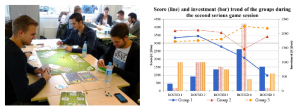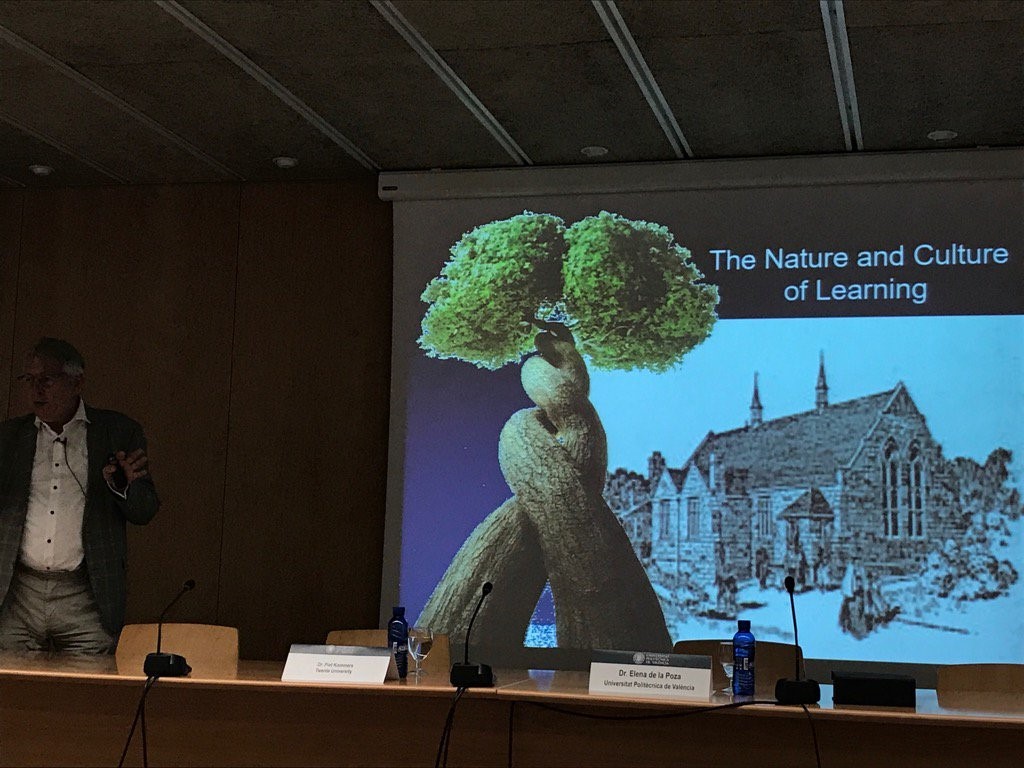eSTEeM
Centre for Scholarship and Innovation
You are here
Reflections from the 3rd International Conference on Higher Education Advances
4th July 2017
Thanks in part to an eSTEeM bursary I attended HEAd’17. 3rd International Conference on Higher Education Advances in Valencia, Spain 21-23 June 2017 (http://www.headconf.org/). The full proceedings are at http://ocs.editorial.upv.es/index.php/HEAD/HEAD17/paper/view/6713. My own paper, A new approach to the introductory teaching of Computing and IT at the Open University UK (on TM111) is to be found on pp. 101-8.
The conference was very wide ranging, with several parallel sessions. I concentrated on gaming, ICT aspects of education and the ‘flipped curriculum’. This last term was new to me, but not so different from OU practice. Having decided traditional classes are pretty inadequate, teachers introduce topics via self-study before students attend face-to-face sessions. Nothing tremendously new, then, but interesting that there were so many papers on the approach. Two that stood out were: In Search of Reusable Educational Resources in the Web (pp. 321-8) and the highly technical topic Flipping the classroom and turning the grades – a solution to teach unbeloved phase diagrams to engineering students (pp. 73-80).
 On gaming in education, the most interesting contribution for me was Gamification in teaching Maintenance Engineering: A Dutch experience in the rolling stock management learning (pp. 641-48). This appeared to be a successful approach based on good old cards, rather than a computer environment.
On gaming in education, the most interesting contribution for me was Gamification in teaching Maintenance Engineering: A Dutch experience in the rolling stock management learning (pp. 641-48). This appeared to be a successful approach based on good old cards, rather than a computer environment.
Most other gaming papers were, as might be expected, much more ICT based, such as: Designing a New Video Game App as an aid for Introduction to Programming classes that use C Programming Language (pp. 10-16). Some, however, adopted a more theoretical approach, such as Effective Integration of Gamification and Learning Management Systems for Creating Gamified Learning Arrangements (pp. 679-86).
The most interesting keynote was perhaps the one by Piet Kommers on Learning for Societal Evolution. Piet Kommers has been recognized as one of the early pioneers in media education. He was leader of the NATO Advanced Research Workshops on Cognitive Learning Tools, and UNESCO professor in educational technology and social media. His research has covered: the smart phone, virtual reality, interactive video, hypermedia, expert systems, modelling and simulations.
 Many other fascinating topics were included that I was unable to attend – ethics, English language teaching, research literacy, and so on. All in all, a most interesting and rewarding conference.
Many other fascinating topics were included that I was unable to attend – ethics, English language teaching, research literacy, and so on. All in all, a most interesting and rewarding conference.
News
- The Benefits of Developing a Community of Practice for OU Associate Lecturers 11th March 2024
- Registration now open for the 13th eSTEeM Annual Conference 27th February 2024
- eSTEeM Call for Scholarship Proposals January 2024 22nd January 2024
- The 13th eSTEeM Annual Conference 2024: Call for abstracts now open 5th December 2023
- New eSTEeM projects now up and running 30th November 2023